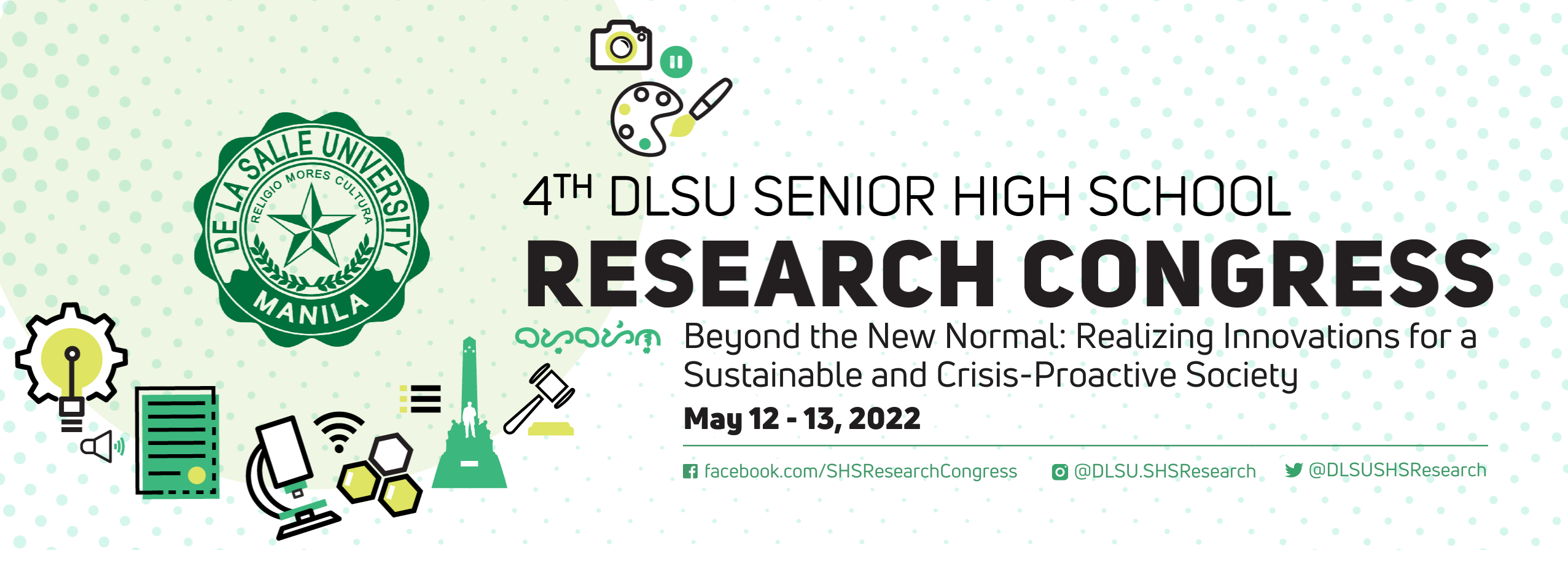“Does the Apple Fall Far from the Tree?” The Role of Parental Factors in Filipino Adolescent Activism
Document Types
Paper Presentation
Research Theme (for Paper Presentation and Poster Presentation submissions only)
Family, Relations, and Social Structure (FRS)
Research Advisor (Last Name, First Name, Middle Initial)
Stella P. Go
Start Date
13-5-2022 10:30 AM
End Date
13-5-2022 12:00 PM
Abstract/Executive Summary
It is widely believed that parents play a role in the outcome of their children. However, there is a scarcity in the literature tackling the parent-child relationship with regard to activist behaviors in offspring. To address this deficit, the study surveyed Senior High School students (N = 300) from the Integrated School of a private Metro Manila university to measure their involvement in social activism (adolescent activism) and to identify its relationship with parental factors (parental activism, parental support, parental psychological control) while accounting for sex and academic strand. The top three (3) forms of activism that the students engaged in were social media activism, voluntary work in educational activities, and e-volunteerism. Results indicate that females and their parents engage in social activism more than males and their parents. A significant difference in adolescent activism was found between the academic strands (F(2,297) = 3.15, p = .04), with HUMSS students scoring significantly higher than STEM students. After controlling for sex and strand, parental activism was found to be the most significant correlate of adolescent activism (R² = .37, F(4, 292) = 42.43, p = <.001), followed by parental psychological control (R² = .4, F(5, 292) = 38.38, p = <.001).
Keywords
"adolescent activism; parental factors; parental activism; parental support; parental psychological control"
“Does the Apple Fall Far from the Tree?” The Role of Parental Factors in Filipino Adolescent Activism
It is widely believed that parents play a role in the outcome of their children. However, there is a scarcity in the literature tackling the parent-child relationship with regard to activist behaviors in offspring. To address this deficit, the study surveyed Senior High School students (N = 300) from the Integrated School of a private Metro Manila university to measure their involvement in social activism (adolescent activism) and to identify its relationship with parental factors (parental activism, parental support, parental psychological control) while accounting for sex and academic strand. The top three (3) forms of activism that the students engaged in were social media activism, voluntary work in educational activities, and e-volunteerism. Results indicate that females and their parents engage in social activism more than males and their parents. A significant difference in adolescent activism was found between the academic strands (F(2,297) = 3.15, p = .04), with HUMSS students scoring significantly higher than STEM students. After controlling for sex and strand, parental activism was found to be the most significant correlate of adolescent activism (R² = .37, F(4, 292) = 42.43, p = <.001), followed by parental psychological control (R² = .4, F(5, 292) = 38.38, p = <.001).


